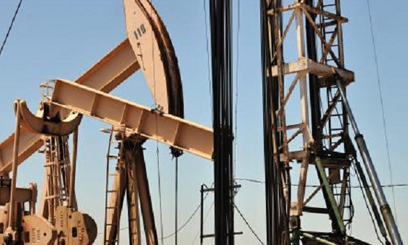 LONDON, Jul 16 – World oil prices eased on Monday after Saudi Arabia and the United Arab Emirates opened pipelines bypassing the Strait of Hormuz, which Iran has repeatedly threatened to close, analysts said.
LONDON, Jul 16 – World oil prices eased on Monday after Saudi Arabia and the United Arab Emirates opened pipelines bypassing the Strait of Hormuz, which Iran has repeatedly threatened to close, analysts said.
Brent North Sea crude for delivery in August slipped six cents to $102.34 per barrel in late morning deals in London, ahead of the contract’s expiry later today.
New York’s main contract, light sweet crude for August, dropped 41 cents to $86.69.
The UAE and Saudi pipelines create optional transport routes for crude, alleviating concerns that Iran could disrupt supplies in negotiations with the West over its nuclear programme, IG Markets said in a report.
“Very quietly and strategically Saudi Arabia and UAE have opened up pipelines that allow it to bypass the Strait of Hormuz which up until now has been the trump card for Iran in its bargaining with the West,” it stated.
“This fresh transport link should help weaken the threat of supply disruption coming out of Iran and force it back to the negotiating table.”
The UAE pipeline runs from oilfields in Abu Dhabi to the Fujairah oil terminal on the Gulf of Oman, bypassing the Strait, and was inaugurated on Sunday, when 500,000 barrels were pumped through it.
The pipeline has an initial capacity of 1.5 million barrels per day rising to a maximum 1.8 million bpd, officials said, and will be fully operational in August.
“Over the weekend, we heard reports that the Fujairah pipeline had been opened,” added Sucden analyst Jack Pollard.
“Seeing as this would allow some crude to circumvent the Straits of Hormuz/Iran territory, this is broadly price negative for crude oil.”
Meanwhile, Saudi Arabia converted a natural gas pipeline running from the country’s eastern province to a terminal near the Red Sea to enable it to pump crude.
Reports estimated that the new links will more than double the total pipeline capacity bypassing the Strait of Hormuz to 6.5 million barrels per day, almost 40 percent of the route’s 17-million-barrel daily traffic.


































